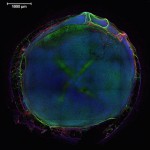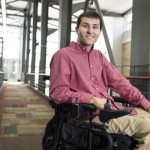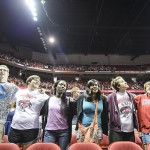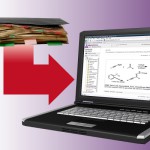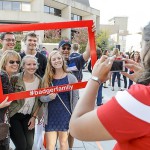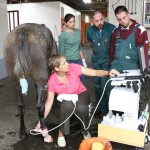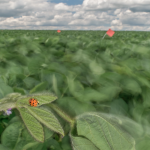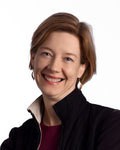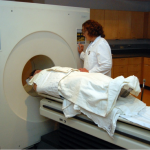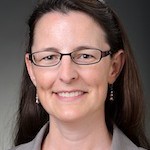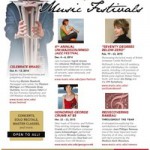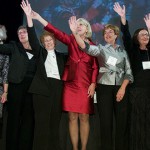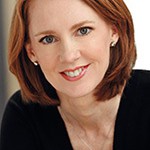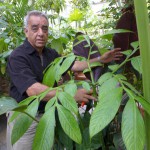UW-Madison team developing ‘tissue chip’ to screen neurological toxins
A multidisciplinary team at the University of Wisconsin–Madison and the Morgridge Institute for Research is creating a faster, more affordable way to screen for neural toxins, helping flag chemicals that may harm human development.
Alumnus finds passion for patient advocacy after accident
When Jeff Mahlum suffered a spinal cord injury during a diving accident in 2011 that left him paralyzed from the chest down, he had the unfortunate opportunity to learn how confusing and daunting the health care system can be. Having graduated with a major in biology from the UW in 2013, Mahlum decided to use the gap year between undergraduate and medical school to learn more about how he could understand the needs of his future patients. Mahlum, who’s now enrolled at the UW School of Medicine and Public Health, discovered patient advocacy and the Center for Patient Partnerships.
Campus reminded of guidelines for political activity
As political activity intensifies in the weeks before the fall election, members of the UW–Madison campus community are encouraged to participate in the political process by voicing their opinions on state and national issues. Students, staff and faculty are reminded, however, of campus and UW System policies regarding what constitutes an appropriate space for political activity.
Electronic Lab Notebooks now available
Researchers have long relied on the venerable and trusted paper lab notebook for keeping an orderly record of research data, notes and experimental procedures. Soon, researchers on the UW–Madison campus will have a new option to store and organize these activities in the form of Electronic Lab Notebook (ELN) software services under a new UW contract with LabArchives.
Recent sightings: Parents’ Weekend
Campus hosted the annual Parents’ Weekend from Sept. 19-21, formally introducing parents to the staples of campus life. The events included luncheons, photo ops, information sessions, faculty presentations and more.
Actions on climate change bring better health, study says
The number of extremely hot days in Eastern and Midwestern U.S. cities is projected to triple by mid-century, according to a new study led by University of Wisconsin–Madison researchers and published today in the Journal of the American Medical Association.
Ultrasound enhancement provides clarity to damaged tendons, ligaments
Ultrasound is a safe, affordable and noninvasive way to see internal structures, including the developing fetus. Ultrasound can also “see” other soft tissue — including tendons, which attach muscles to bone, and ligaments, which attach bone to bone. Ray Vanderby, a professor of biomedical engineering and orthopedics and rehabilitation at the University of Wisconsin–Madison, is commercializing an ultrasound method to analyze the condition of soft tissue.
Badger duo experiences an amazing summer on ‘The Amazing Race’
Amy DeJong and Maya Warren had a truly epic summer, but they can't tell you about it.
Dwindling wind may tip predator-prey balance
Bent and tossed by the wind, a field of soybean plants presents a challenge for an Asian lady beetle on the hunt for aphids. But what if the air - and the soybeans - were still?
Researchers study role of cultural diversity awareness in biomedical mentoring
The nation needs a more diverse biomedical workforce. To help advance that goal, a team of University of Wisconsin–Madison researchers will assess whether cultural-diversity training of research mentors makes a positive difference for those they are mentoring in biomedical research.
Researchers study vital ‘on/off switches’ that control when bacteria turn deadly
No matter how many times it’s demonstrated, it’s still hard to envision bacteria as social, communicating creatures. But by using a signaling system called “quorum sensing,” these single-celled organisms radically alter their behavior to suit their population. Helen Blackwell, a professor of chemistry at the University of Wisconsin–Madison, has been making artificial compounds that mimic the natural quorum-sensing signals, including some that block a natural signal from binding to its protein target.
Down syndrome helps researchers understand Alzheimer’s disease
The link between a protein typically associated with Alzheimer's disease and its impact on memory and cognition may not be as clear as once thought, according to a new study from the University of Wisconsin–Madison's Waisman Center. The findings are revealing more information about the earliest stages of the neurodegenerative disease.
Crone set to guide Graduate School into new era
This past week, Interim Dean Wendy Crone took time to answer a few questions about the mission and priorities of the Graduate School in its new configuration.
Focus on festivals: School of Music’s new approach invites more interaction
Breaking with tradition, the UW–Madison School of Music will present an array of music festivals this year, rather than individual guest artists scattered throughout the fall and spring semesters. Festivals include one devoted entirely to brass music, scheduled for Oct. 8-13; a jazz festival in early December; and two featuring music of contemporary composers: Cecilia McDowall (Feb. 19-23) and George Crumb (March 22-23).
Excavation exposes Roman imperial outpost at its bitter end
Like Pompeii, the ancient ruins of Zeugma, a frontier city of the Roman Empire on the banks of the Euphrates River in what is now modern Turkey, stood frozen in time.
Give happy: Gretchen Rubin says philanthropy can spur a cycle of happiness
If you’re happy and you know it, do something good for someone else. If you’re not happy and you want to get there, do the same.
Campus botany gardener: transplant master
To hear master gardener Mo Fayyaz tell it, raising plants is straightforward: Get the right light, temperature, soil and water. Keep your eyes open. If one thing doesn’t work, try something else. And if everything fails, choose another plant. “You cannot just plant a rose in the shade and expect much,” he says. In 1984, Fayyaz secured his present job, director of UW–Madison’s Botany Garden and Greenhouse, and he began a long campaign to nurture and expand a garden that supports teaching and research in the biological sciences.

